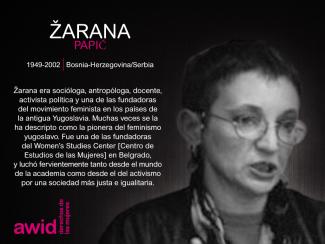
Zarana Papic

El Consejo de Derechos Humanos (CDH) es el cuerpo intergubernamental del sistema de las Naciones Unidas responsable de la promoción y protección de todos los derechos humanos en todo el mundo. El HRC se reúne en sesión ordinaria tres veces al año, en marzo, junio y septiembre. La La Oficina del Alto Comisionado para los Derechos Humanos (ACNUDH) es la secretaría del Consejo de Derechos Humanos.
Debate y aprueba resoluciones sobre cuestiones mundiales de derechos humanos y el estado de los derechos humanos en determinados países
Examina las denuncias de víctimas de violaciones a los derechos humanos o las de organizaciones activistas, quienes interponen estas denuncias representando a lxs víctimas.
Nombra a expertos independientes que ejecutarán los «Procedimientos Especiales» revisando y presentado informes sobre las violaciones a los derechos humanos desde una perspectiva temática o en relación a un país específico
Participa en discusiones con expertos y gobiernos respecto a cuestiones de derechos humanos.
A través del Examen Periódico Universal, cada cuatro años y medio, se evalúan los expedientes de derechos humanos de todos los Estados Miembro de las Naciones Unidas
Se está llevarando a cabo en Ginebra, Suiza del 30 de junio al 17 de julio de 2020.
AWID trabaja con socios feministas, progresistas y de derechos humanos para compartir conocimientos clave, convocar diálogos y eventos de la sociedad civil, e influir en las negociaciones y los resultados de la sesión.
Par Michel’le Donnelly
Le festival féministe Crear | Résister | Transform en septembre a été une véritable bouffée d'air frais en ces temps incertains, turbulents et douloureux.
L'espace créé par ce festival était absolument nécessaire. Nécessaire pour les âmes de ceux et celles qui cherchent du réconfort en ces temps les plus sombres. Nécessaire pour ceux et celles qui rêvent d’une communauté dans ce qui ressemble à un monde de plus en plus isolé et, par-dessus tout, nécessaire pour ceux et celles qui luttent contre les systèmes qui ont mis nombre d'entre nous à genoux, surtout au cours de ces deux dernières années.
«La crise n'est pas une nouveauté pour les mouvements féministes et sociaux, nous avons une longue histoire de survie face à l'oppression et cela fait longtemps que nous construisons nos communautés et nos propres réalités.»
Plaider pour des visions et des réalités alternatives à celle dans laquelle nous vivons actuellement constitue un élément fondamental du programme féministe. De nombreuses personnes extraordinaires œuvrent à explorer d'autres façons d'exister dans ce monde. Ces alternatives sont axées sur les personnes. Elles sont équitables et justes. Ces mondes sont remplis d'amour, de tendresse et d'attention. Les visions esquissées sont presque trop belles à imaginer, mais nous devons nous forcer à le faire car c'est la seule façon de continuer.
Au cours des dix derniers mois, j'ai eu la chance incroyable de travailler avec un collectif féministe qui ne se contente pas d'imaginer une réalité alternative, mais qui la vit activement. Nous nous inspirons du travail de nombreux autres mouvements féministes à travers le monde qui n'ont pas laissé le patriarcat capitaliste et suprémaciste blanc mettre un frein à leurs visions. Ce collectif m'a permis de tenir le coup alors que je ne demandais qu’à m'effondrer. À l'instar de l'histoire partagée par Maria Bonita le quatrième jour du festival, la libération à laquelle les mouvements féministes m’ont donné accès est bien trop importante pour que je sois la seule à en bénéficier. C'est quelque chose qui se partage, que nous devons crier sur les toits pour permettre aux autres de nous rejoindre.
Le quatrième jour du festival a été marqué par une conversation captivante entre Felogene Anumo, Dr. Dilar Dirik, Nana Akosua Hanson et Vandana Shiva, qui a encouragé les participant·e·s au festival à croire qu’un avenir alternatif était non seulement possible, mais qu'il était, de fait, urgent. Les féministes parlent de mondes alternatifs depuis tant d'années; entendre les panélistes en parler s’est avéré instructif, mais aussi réconfortant. Réconfortant dans le sens où je me suis sentie en sécurité à l’idée de savoir qu’il existe vraiment des réseaux féministes mondiaux solides travaillant au-delà des frontières internationales et nationales, cherchant à décoloniser les cadres établis de nos réalités actuelles.
Au cours de la session, Dr Dirik a souligné le fait que la croyance, le sacrifice et la patience sont d’une nécessité absolue si l’on veut abolir les systèmes oppressifs dans lesquels nous vivons actuellement. Collaboration, partenariat, créativité, solidarité et autonomie. Ce sont les piliers essentiels de la construction d'une société féministe mondiale et ils devraient être adoptés par tous les mouvements féministes du monde.
Des exemples pratiques de ces réalités peuvent être trouvés à travers le monde, notamment le Mouvement des femmes Soulaliyate pour les droits fonciers. Ce mouvement, qui fait référence aux femmes tribales du Maroc vivant sur des terres collectives, représente la première mobilisation communautaire à l’échelle nationale pour les droits fonciers au Maroc. Bien qu’initialement assez restreint, le mouvement s'est transformé en un programme national qui a remis en question la nature genrée des lois régissant les terres dans le pays. En 2019, le groupe a contribué à la refonte du cadre législatif national sur la gestion des biens communautaires par l'adoption de trois séries de lois garantissant l'égalité entre les femmes et les hommes.
La maison trans Zuleymi, au Pérou, est un autre exemple concret. Fonctionnant depuis 2016, cette maison est un refuge pour les femmes, les filles et les adolescent·e·s trans migrant·e·s que l'État a laissé·e·s pour compte. Elle a fourni un abri sûr à 76 femmes trans migrant·e·s du Venezuela, ainsi qu'à 232 autres provenant de la jungle, de communautés autochtones et de la côte nord du Pérou.
Il est incroyablement inspirant de découvrir ces mouvements féministes qui œuvrent à faire de ces futurs alternatifs une réalité et c’est exactement ce dont nous avons besoin, en particulier lorsque nous avons à affronter le flot incessant de mauvaises nouvelles qui semble couler sans interruption.
«Le patriarcat capitaliste est comme un cancer. Il ne sait pas quand s’arrêter de croître.»
- Dr Vandana Shiva
L'AWID a toujours été un mouvement inspiré par les réalités féministes dans lesquelles il nous est possible de vivre. Grâce à ses festivals, ainsi qu'au magazine et à la boîte à outils des Réalités féministes, l’AWID nous a montré une autre façon de faire les choses. Nous pouvons imaginer un monde où les soins sont prioritaires, où les économies féministes et la justice de genre sont la norme. C'est en créant des futurs alternatifs que nous ripostons, que nous résistons à la violence qui est perpétrée contre nos corps chaque jour.
Le festival Crear | Résister | Transform m’a permis de me sentir vraiment connectée aux membres d’une communauté mondiale, que je ne rencontrerai pour la plupart jamais. Le fait de savoir que nous travaillons tou·t·es à la création d'un autre monde a allumé un feu dans mon âme et j'ai hâte de voir ce que le prochain festival nous réservera.
Si vous l'avez manquée, assurez-vous de regarder la session «Elle est en route : alternatives, féminismes et un autre monde» de la quatrième journée du festival ci-dessous. Et souvenez-vous de ce que la Dr Shiva a dit avec tant d'éloquence : «L'énergie des femmes perpétuera la vie sur terre. Nous ne serons pas vaincues.»

par Ana María Belique
El Batey Naranjo est une communauté un peu à l’écart de la ville mais regorgeant de personnes travailleuses et enthousiastes. (...)
< illustration : « Tejedoras de sueños » (« Tisseuses de rêves ») , par Diana Mar
If the positions advertised have closed, or just don’t match your area of interest and expertise, we suggest the following resources for your job search.
I know you are so close. You can feel it can't you? How things need to shift and you need to centre yourself.
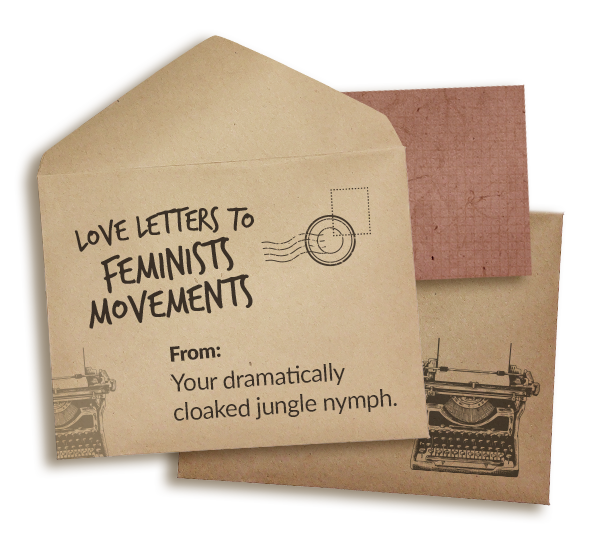
This is a letter to tell you to do it. Choose your healing. Choose to be OK. Better than OK. Choose to be whole, to be happy. To cry tears for yourself and no one else. Choose to shut out the world and tell them that 'you will be back in 5 mins'. Or five days. Or five years.
Or never.
Choose to not take it all on. Choose to take none of it on. Because none of it is yours. It was never yours. They told you since you were born that it was yours. Your family's problems. Your lovers' problems. Your neighbours' problems. The globe's problems. The constant whisper that these problems belong to you. They are yours. Yours to hold, yours to shoulder. Yours to fix.
That was a lie.
A bamboozle
A long con.
A scam.
The problems of the universe are not yours.
The only problems that are yours are your own. Everyone else can take a hike.
Allow yourself to drop everything and sprint off into the jungle. Befriend a daisy clad nymph, start a small library in the roots of a tree. Dance naked and howl at the moonlight. Converse with Oshun at the river bed.
Or simply drink a cup of tea when you need to take a moment to breathe.
Give yourself permission to disappear into the mist and reappear three countries over as a mysterious chocolatier with a sketchy past and penchant for dramatic cloaks and cigars.
Or stop answering work calls on weekends.
Let yourself swim to deserted island with a lover and dress only in the coconut shells from coconut rum that you make and sip at sunset.
Or say no when you don't have the capacity to create space for someone.
The options for holding yourself are endless.
Whatever you do, know the world will always keep spinning. That's the beauty and the pain of it. No matter who or what you choose over yourself and your soul the world will always keep spinning.
Therefore, choose you.
In the morning when that first light hits, choose you. When it’s lunchtime and it’s time to cry on company time, choose you. In the evening, when you are warming up leftovers because you didn’t have time to cook again, choose you. When anxiety wakes you up and existence is silent at 3:45 am.
Choose you.
Because the world will always keep twirling on a tilt and you deserve to have someone always trying to make it right side up for you.
Love,
Your dramatically cloaked jungle nymph.
Le Forum est un exemple vivant de ce que le grand NOUS peut faire. Nous allons au Forum, nous sommes des graines, nous sommes ensuite semées. Nous devons célébrer cela.
- Sara Abu Ghazal, Liba
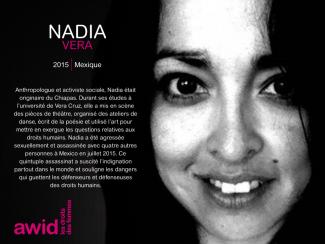
Mobilizing working-class transgender hairdressers and beauty queens, the dynamic leaders of the world’s only LGBT political party wage a historic quest to elect a trans woman to the Philippine Congress.
Search for funders based on their requirements for groups to be registered.
«Mientras estaba en la primera línea de la protesta, fui sometida a violencia sexual, a lesiones físicas y a otras formas de violencia. Pero no me detendré hasta que logremos pleno gobierno civil en Sudán. Debemos impedir la militarización del Estado. Nuestros cuerpos no deben seguir siendo tratados como campos de batalla»
dijo Amal,1 una manifestante de 23 años.2
Durante los últimos cuatro años, las mujeres lideraron la revolución en Sudán. Su liderazgono fue solo callejero, sino que constituyó el poder que impulsó la resistencia constante en todos los niveles. Las mujeres y las jóvenes feministas se convirtieron en la conciencia alerta del movimiento de cambio y democratización sudanés. Desde la primera protesta del 13 de diciembre de 2018 contra el régimen anterior, en la ciudad de Aldmazein, en el área de conflicto del Nilo Azul, las jóvenes estudiantes fueron las voces que demandaron el fin de la dictadura de los militares y los Hermanos Musulmanes, que ya lleva treinta años en el poder.

El movimiento feminista, liderado por mujeres de entre 16 y 35 años, ha entablado una revolución dentro de la revolución en Sudán durante los últimos cuatro años de lucha ininterrumpida. Las potentes voces de las jóvenes que ocupan espacios en las calles, las redes sociales, la sociedad civil y las organizaciones políticas se elevaron lo suficiente como para reconfigurar la opinión pública y desafiar las normas sociales. Por primera vez en la historia de Sudán, las discusiones sobre violencia sexual y de género y sobre los tabúes de la violencia doméstica y los procesos de toma de decisiones dominados por los hombres se convirtieron en debates generalizados. Los equipos de fútbol de mujeres designaron voceras ante los comités de resistencia, y los sindicatos profesionales liderados por mujeres son parte de la expresión de la nueva ola del movimiento feminista de Sudán. El logro más importante es que las jóvenes se identifican como feministas en forma orgullosa y pública, en un país regido por el fundamentalismo islámico durante tres décadas. Los jóvenes varones que apoyan el activismo feminista -y se identifican como feministas- son otra señal de progreso notable.
Bajo el actual régimen del golpe militar, las jóvenes que lideran estas iniciativas y los grupos de mujeres que trabajan en el territorio no pueden mencionarse aquí debido a varios problemas de seguridad. Pero su resiliencia, su fuerza y su valentía serán incluidas en los libros de historia. Las audaces jóvenes que encabezan la resistencia en las calles y detrás de las pantallas, y que trabajan en diferentes profesiones y áreas de activismo están dando forma al futuro de Sudán. Las jóvenes feministas de Sudán están creando nuevos espacios para que las narrativas y los discursos feministas reestructuren la distribución del poder a nivel político, económico y social.
A pesar de la inmensa violencia, del resurgimiento del islamismo fundamentalista, de la militarización y de la reducción de los espacios cívicos, las activistas feministas de Sudán se mantienen arraigadas en su sororidad. Siguen siendo una gran inspiración para los movimientos feministas de todo el mundo.
Nazik Awad
1 «Amal» es un seudónimo utilizado para proteger a la joven activista citada.
2 Desde 2018, Sudán vive en una revolución constante. Una nueva ola opositora arrancó a partir del golpe militar del 25 de octubre de 2021.
2-5 December, 2024, Bangkok, Thailand! We will gather at the Queen Sirikit National Convention Center (QSNCC) as well as virtually online.

Conoce el programa del Club de Cine Feminista de AWID «Holding up the Skies» [«Sosteniendo los cielos»], una serie de películas sobre realidades feministas de África y la Diáspora Africana, curada por Gabrielle Tesfaye.

AWID is a part of an incredible ecosystem of feminist movements working to achieve gender justice and social justice worldwide. With our 40th anniversary, we are celebrating all that we’ve built over these last 40 years. As a global feminist movement support organization we know that working with fierce feminisms is our way forward, acknowledging both the multiplicity of feminisms and the value of fierce and unapologetic drive for justice. The state of the world and of feminist movements calls for brave conversations and action. We look forward to working together with our members, partners and funders in creating the worlds we believe in, celebrating the wins and speaking truth to power in service of feminist movements globally.
The 2023 Feminist Calendar is our gift to movements. It features the artwork of some of our amazing AWID members.

Get it in your preferred language! |
Select image quality |
| English | Print Quality | Digital Version |
| Français | Print Quality | Digital Version |
| Español | Print Quality | Digital Version |
| Português | Print Quality | Digital Version |
| عربي | Print Quality | Digital Version |
| Русский | Print Quality | Digital Version |
Las inscripciones comenzarán a principios de 2024. Pronto anunciaremos la fecha exacta de inscripción y el valor correspondiente. La inscripción incluirá la participación en el Foro, así como almuerzo y refrigerios (el desayuno se proporcionará en los hoteles) y una cena en el lugar.
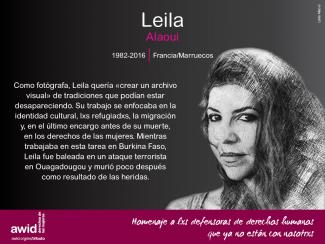
A complex and evolving network of anti-rights actors is exerting increasing influence in international spaces as well as domestic politics. Often backed by obscure funding, these actors build tactic alliances across issues, regions, and faiths to increase their impact.
Feminist and women’s rights organizations don’t just rely on institutional funding, we resource ourselves. Our organizing is powered by passion, political commitment, solidarity and collective care.
These resources are self- generated and autonomous, and often invisible in our budgets, but they are the backbone of our organizing.